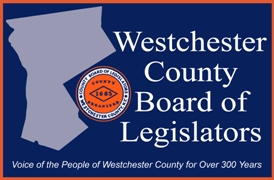COMMITTEE ON ENERGY AND ECONOMIC DEVELOPMENT
MINUTES: January 11, 2005
MEMBERS: Chair: M. Rogowsky – Legislators: U. LaMotte, G. Oros
IN ATTENDANCE: BOL STAFF: S. Kirkpatrick; M. Davis; CEO: Bill Randolph; OTHERS: Stephen Filler
DISCUSSION:
Chair Rogowsky called the meeting to order at 9:45 a.m. and introduced Ed Gibbs, Executive Director of COWPUSA
1. Substitution of PPI for determining NYPA production charges:
Mr. Gibbs explained that there will be an increase of 2.4% in production charges for 2005 after a freeze since 2001. It is an “open ended contract.” But, this is the rate until 2007. Generally, the 103 municipal governments, water & sewer districts and school districts in Westchester County follow the same rate as the county. Legis. Rogowsky asked about the destination of Indian Point power now that the agreement for Entergy to sell power back to NYPA expired in 2004. Mr. Gibbs said that he has not been able to get that information.
The Con Ed delivery and NYPA commodity increase for 2005 will be less than 5% which Mr. Gibbs was please with since they anticipated 10%. This will probably be a 5 year contract when negotiations are completed.
He suggested an initiative for the committee to change the energy usage culture. If children were encouraged to take conservation measures home this would save millions around the county.
Mr. Gibbs announced that NYPA lawyers had discovered a problem with the NYS law that enables NYPA to sell cheaper power to municipalities and through COWPUSA to encourage economic growth. The law required that that power must come from the Fitzpatrick plant which has been sold in 2000. The agreement stated that NYPA could buy back power through 2004. Westchester gets 20 Megawatts from NYPA. Since that power is no longer available, NYPA does not have power to sell to COWPUSA. And COWPUSA cannot sell discounted power to coax business to Westchester in conjunction with the IDA.
Senator Liebell had introduced corrective legislation in 2003 but there was no companion Assembly bill and nothing was done in 2004. The administration is working having the legislation revised to insert “authority sources” rather than a specific plant name. Karen Pasquale is the liaison contacting the Westchester delegation. They are hopeful that a revised legislation will be passed within 3 months.
2. Status of Niagara Hydroelectric Licensing Application:
Niagara hydropower goes primarily to upstate industries & funds to 51 small municipalities to own their own lines. Mr. Gibbs met with NYPA to discuss the issue. Westchester will hire a lawyer to object to the re-licensing of Niagara for 50 years unless some collaborative effort is undertaken.
The case on the purchase of hydro power that went to the US Supreme Court was lost and set a precedent that prevents an easy route to upstate hydro.
The goal now is to create a “furor” so NYPA will be willing to negotiate and give us some of the hydropower from Niagara. He is keeping the pressure on.
3. Companies buying “Economic Development Power:
Mr. Gibbs delivered a list of customers buying power through COWPUSA. As the contracts come up for renewal, they may not be renewed. If they are under contract, the companies may continue to purchase discounted power. The companies at the bottom of the list are waiting for 10 additional MW once the revised legislation is passed.
COWPUSA operates separately from the IDA and negotiates the contracts and supervises the work.
Power is supposed to go to industrial and technological not retail use. Where retail receives discounted power, it may be withdrawn at any time.
4. Sterling Planet Proposal
This proposal outlines various scenarios for the purchase of renewable power as far as type and source. The difference in cost is dramatic when we go to national sources as opposed to solely NYS.
There are state requirements for the purchase of renewable energy in the future. The Board adopted a resolution that 25% of Westchester energy usage be renewable by 2015. Westchester usage is 33 megawatts.
Westchester has a contract with NYPA, so we would ask NYPA to buy a portion from a renewable source that we had found. By NYS law, municipalities must buy the cheapest power. Legis. Rogowsky is working with state legislators to revise that law.
Mr. Gibbs explained new energy laws that will benefit ratepayers:
One eliminated the “gross receipts” tax on energy
Another law that taxed natural gas that was imported from out of state is being phased out.
Legis. Rogowsky moved and Legislator LaMotte seconded the adoption of the minutes of April 6. Legislator Rogowsky moved and Legis. Oros seconded the adoption of the minutes of October 26. Both minutes were adopted.
Legis. LaMotte moved that the items listed on the agenda be received into the appropriate folders.
At 10:35 a.m., a motion to adjourn was made, seconded and passed.


